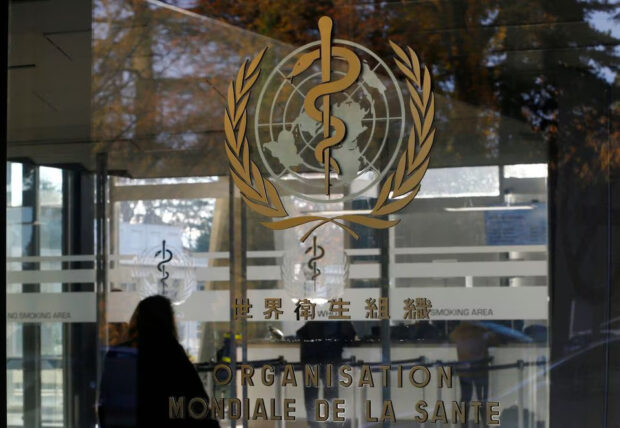Infertility impacts one in six: WHO
[ad_1]

A emblem is pictured on the World Well being Group (WHO) headquarters in Geneva, Switzerland, November 22, 2017. REUTERS/File Photograph
Geneva, Switzerland — Round one in each six adults experiences infertility, the World Well being Group estimated Tuesday because it referred to as for an pressing improve in entry to fertility care.
The WHO decided that round 17.5 p.c of adults worldwide are affected by infertility in some unspecified time in the future, and located little variation between areas and rich and poorer nations.
“Globally, an estimated one out of each six individuals are affected by the shortcoming to have a baby in some unspecified time in the future of their life,” WHO chief Tedros Adhanom Ghebreyesus mentioned within the foreword to a contemporary report on the difficulty.
“That is no matter the place they dwell and what sources they’ve.”
Throughout their lifetime, 17.8 p.c of adults in high-income nations and 16.5 p.c in low- and center earnings nations had been affected by infertility, it discovered.
Tedros mentioned the report — the primary of its form in a decade — revealed “an essential reality: infertility doesn’t discriminate.”
The WHO designated the difficulty a “main well being problem globally”, however careworn the issue of evaluating the state of affairs in varied areas because of a scarcity of information from plenty of nations.
‘Jury nonetheless out’
Infertility is classed as a illness of the male or feminine reproductive system outlined by the failure to realize a being pregnant after 12 months or extra of standard unprotected sexual activity.
Tuesday’s report didn’t study the causes of infertility, and didn’t search to find out developments over time, or infertility variations between the sexes.
As an alternative, it supplied a primary estimate of the worldwide and regional prevalency after specialists ploughed via piles of research performed world wide between 1990 and 2021.
The WHO warned that there have been important variations within the information gathered, together with some nations solely together with adults as much as a sure age, and others with no age cut-off, insisting on the necessity for higher information.
“We can not, based mostly on the info now we have, say that infertility is rising or fixed… The jury’s nonetheless out on that query,” James Kiarie, head of the WHO’s Contraception and Fertility Care unit, instructed reporters.
Tedros agreed.
“Infertility impacts tens of millions,” he mentioned, lamenting that “even nonetheless, it stays understudied, and options underfunded, and inaccessible to many, as the results of excessive prices, social stigma and restricted availability.”
Stigma, inequity
Pascale Allotey, head of the WHO’s Sexual and Reproductive Well being and Analysis division, additionally highlighted the stigma related to infertility and the inequity in entry to remedy.
“The price of fertility care is an immense problem for many individuals,” she instructed reporters, warning that is “a critical fairness situation and really steadily a medical poverty entice.”
On the identical time, “procreation comes with a big societal stress,” she mentioned, mentioning that in lots of nations “being pregnant stays vital to the notion of womanhood and… of a pair.”
“Failure is commonly met with stigma,” Allotey mentioned, mentioning that individuals with infertility typically undergo “anxiousness and melancholy, with ramifications for individuals’s psychological and psychosocial wellbeing.”
There may be additionally “an elevated threat of intimate companion violence related to infertility,” as relationships are examined,” she warned.
The WHO is asking on nations to incorporate infertility remedy as a part of their reproductive well being insurance policies, providers and financing.
“We wish to ensure that we break the silence on infertility,” WHO fertility analysis scientist Gitau Mburu instructed reporters.
Tedros additionally insisted that “the sheer proportion of individuals affected present the necessity to widen entry to fertility care and guarantee this situation is now not sidelined in well being analysis and coverage.”
“Secure, efficient, and inexpensive methods to realize parenthood (have to be made) out there for many who search it.”
RELATED STORIES:
Covid-19 vaccines don’t trigger infertility, say Yale professor, scholar
As China’s beginning fee slumps, political advisor urges egg freezing for single girls
Learn Subsequent
Subscribe to INQUIRER PLUS to get entry to The Philippine Each day Inquirer & different 70+ titles, share as much as 5 devices, hearken to the information, obtain as early as 4am & share articles on social media. Name 896 6000.
[ad_2]


No Comment! Be the first one.